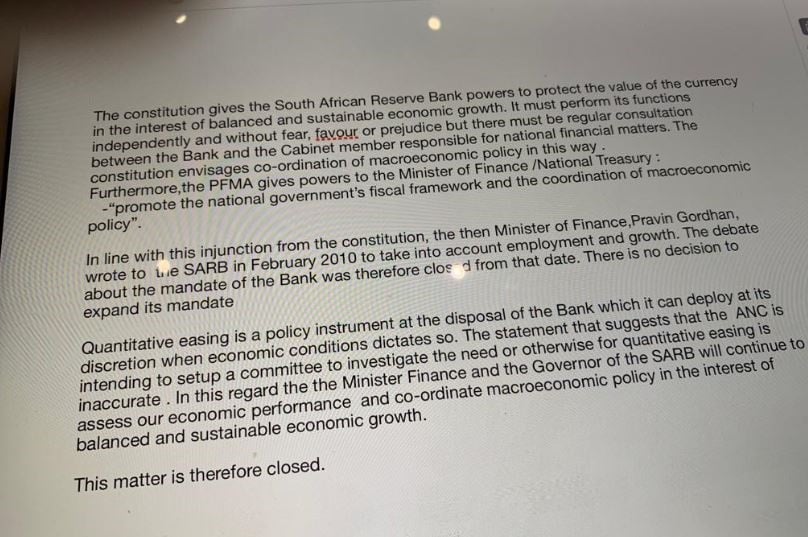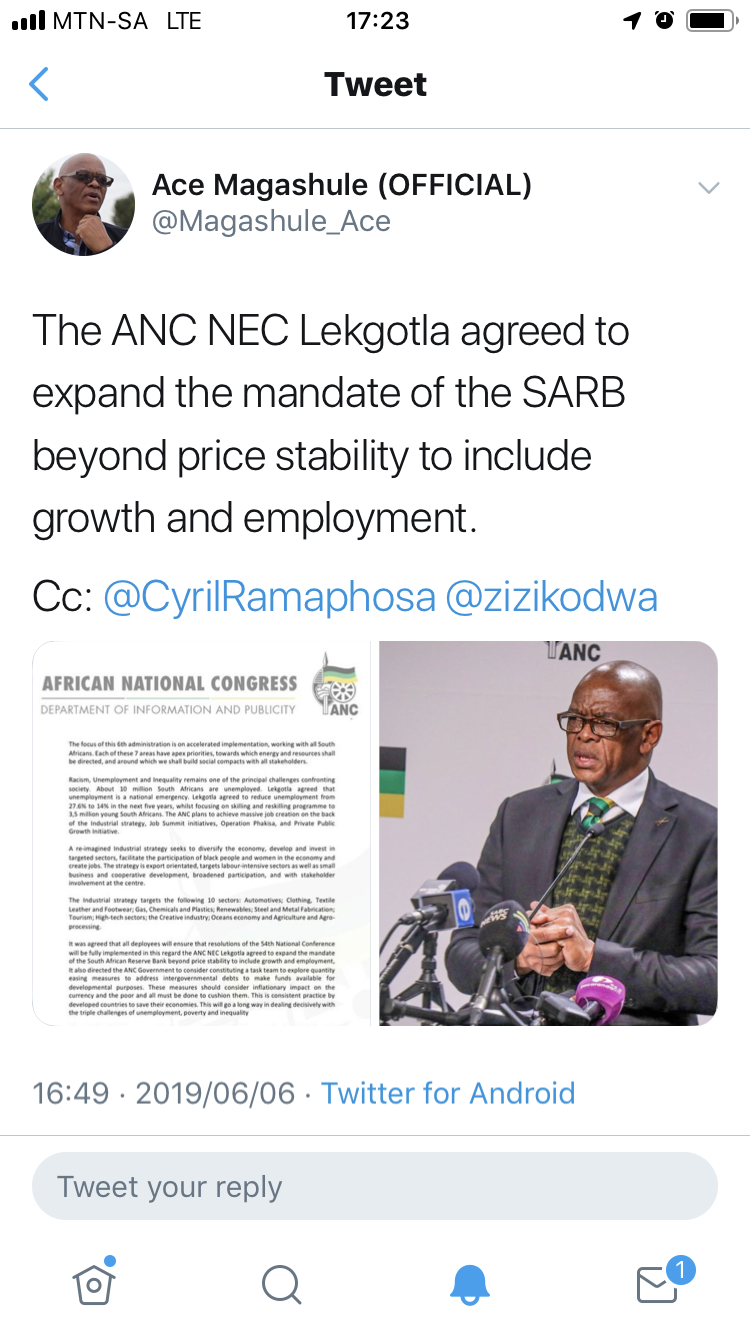
It’s been quite couple of days in the good republic, with the friction between the reformist grouping in the ANC, led by President Cyril Ramaphosa, and those in opposition, led and personified by Ace Magashule, erupting into a very public conflict.
Ramaphosa has been very reserved in getting visibly involved (to outsiders, at least) in the ANC’s existential crises. Since being elected leader at the party’s Nasrec elective conference in December 2017, he has repeatedly emphasised the need for unity, notwithstanding the continued internal assault on him, his kitchen cabinet and his reform efforts from within the organisation.
Magashule has undoubtedly been leading that charge. And if his statement on Tuesday, disavowed on Thursday by Ramaphosa, could have started talk about censure, his insubordination shortly after Ramaphosa’s rebuttal has now all but ensured that the confrontation between the two (or more) factions will come to a head.
On Tuesday Magashule read out a statement relaying details of a meeting of the party’s national executive committee. In it he said the NEC took a decision on expanding the South African Reserve Bank’s mandate as well as starting a process to instruct the bank to consider quantitative easing – printing money – as a means of alleviating pressure on government.
Magashule’s statement read: “It was agreed that all deployees will ensure that resolutions of the 54th National Conference will be fully implemented in this regard the ANC NEC Lekgotla agreed to expand the mandate of the South African Reserve Bank beyond price stability to include growth and employment. It also directed the ANC Government to consider constituting a task team to explore quantity easing measures to address intergovernmental debts to make funds available for developmental purposes.”
He tweeted the ANC’s statement shortly after delivering it to the media. It led to an enormous outcry, with Finance Minister Tito Mboweni and Enoch Godongwana, chairperson of the party’s economic transformation committee, leading the charge on Magashule. Mboweni first took to Twitter and followed it up with a Facebook post, all before 23:00 on Tuesday night.
And Godogwana, clearly exasperated with the turn of events, and the effect on the market and investors’ confidence, issued a statement saying Magashule’s recollection of what transpired at the NEC was wrong:
On Wednesday SARB governor Lesetja Kganyago entered the fray, and appearing alongside Mboweni at an event at Constitution Hill, said the issue was a “non-discussion” and a “Trojan horse”. And he went even further that evening, declaring there are “barbarians at the gate” of the central bank. “Institutions have been systematically weakened and gutted – key institutions in law enforcement. Quality institutions matter. [The Constitution] created institutions and tasked them [to undertake] various democratic processes,” he said.
But Magashule wasn’t alone on social media. He had strong support from Mzwandile Masina, the mayor of Ekhuruleni, and Tony Yengeni, a member of the NEC and convicted fraudster, who attacked Mboweni (without naming him). Yengeni was also active, although this reporter is blocked from viewing his Twitter feed.
And then he pinned this tweet at the top his feed:
On Thursday Ramaphosa finally broke his silence, issuing a statement from the “office of the ANC president” and going as far as he could in rebuking Magashule. The statement, in Ramaphosa’s name with Zizi Kodwa as contact person (and not the party’s spokesperson, Pule Mabe), sought to reassure investors and calm markets, saying that the mandate of the SARB has not changed and that it is not feasible to buy out private shareholders in the bank.
“The officials emphasised the policy positions of the ANC on the independence and role of the SARB as set out in the Constitution of the Republic of South Africa [which is] protecting ‘the value of the currency in the interest of balanced and sustainable economic growth’. It further states that this mandate must be exercised in regular consultation with government through the cabinet minister responsible for national financial matters. This policy has not changed,” Ramaphosa said.
He added that “recent public spats” – a direct reference to Magashule’s statements and the (necessary) forced reaction to it – were “not being helpful” and were undermining the confidence of the public and investors.
Without naming and shaming Magashule, and given his propensity for stealth and keeping up a semblance of unity, this was as far as Ramaphosa could have gone.
But, remarkably, Magashule was not done and a mere 24 minutes after Ramaphosa’s statement was issued he again issued the disavowed NEC statement from Tuesday, tweeting it from his official Twitter account and tagging both Ramaphosa and Kodwa.
It was left to stew in the murky world of Twitter for a good while – maybe an hour – sending a clear signal to Ramaphosa and his cohort, and drawing support from individuals like Carl Niehaus – before it was deleted. In its stead Magashule posted this:









